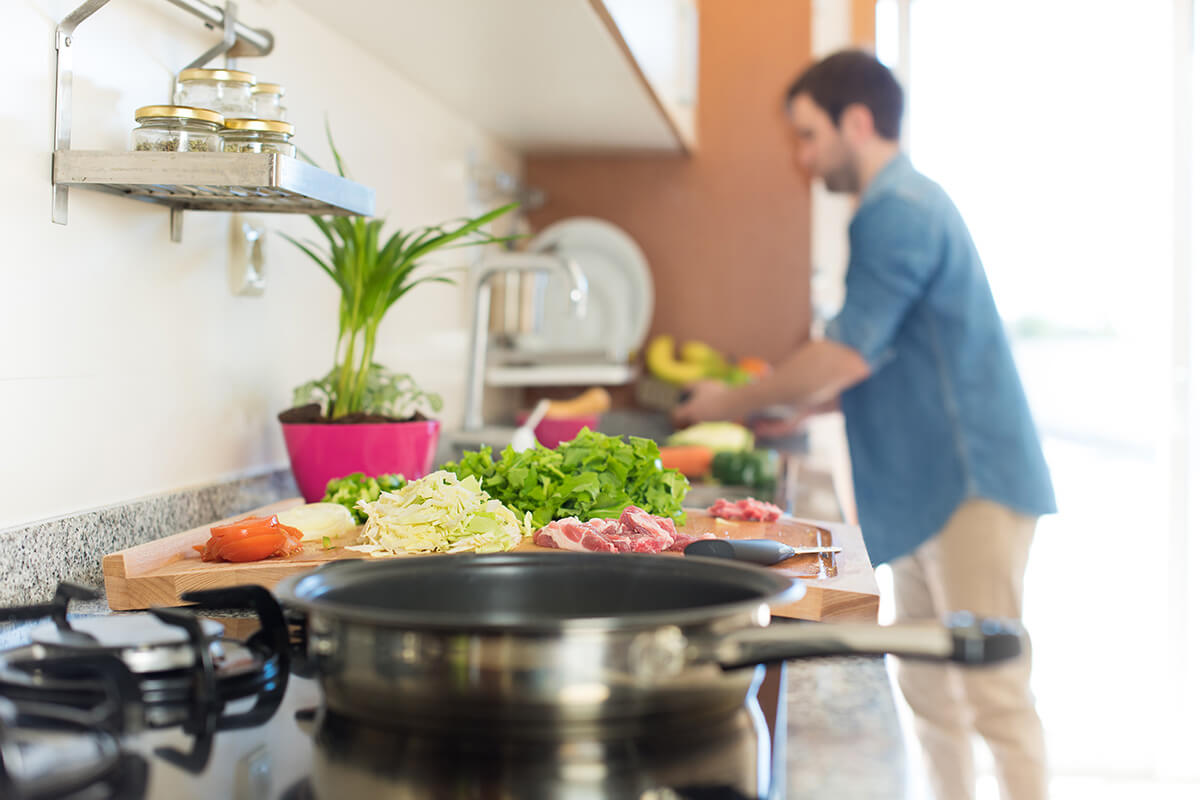
Now that it’s officially fall, you may be dreaming of cooking up warm soups to enjoy by the fire. Or, you could be thinking ahead to what you plan on serving for Thanksgiving dinner. Whenever you step foot in the kitchen to prepare a meal, it’s important that you keep these energy efficient cooking tips in mind:
Choose the right cookware.
The right type of cookware can help you reduce energy losses while you cook in the kitchen. Choose pots and pans with a flat bottom so heat can evenly disperse to every inch of the cookware and cook your food without wasting energy. How much energy will you be saving by making this simple switch? According to Energy.gov, a warped bottom pot uses 50% more energy to boil water than a pot with a flat bottom. If possible, you should also find pots and pans with copper on the bottom. Copper heats up much faster than other materials, so it will help you cook your food more efficiently.
If you’re baking in the oven, choose a glass or ceramic dish, which don’t require as much heat to cook food as other pans. This allows you to dial down the temperature on your oven and reduce the amount of energy you use to make dinner.
Choose the right size.
Another part of choosing the right cookware is making sure you are using the appropriate size. Match the size of your pan to the size of the burner you are using on the stove. If the pan is smaller than the burner, energy will be wasted through the few inches of the burner that are not covered by the pan.
Clean your appliances.
Before you use the oven, stove or microwave in your kitchen, ensure that it has been thoroughly cleaned. Clean appliances are more energy efficient than those that still have food particles or burnt food lingering around. Before you turn on these appliances, wipe them down with a wet cloth or use the self-cleaning feature to ensure the appliance is ready when you need it.
Prepare.
Before you start to heat up an appliance, make sure you have prepared all of the ingredients. If you turn on the stove before chopping up vegetables or trimming the fat off of chicken, you’re wasting energy since the stove is emitting heat that is not being used to cook food. Go through the recipe in your head to check that you have prepared all of the ingredients prior to turning on the stove or oven.
Cook double.
Try to cook double the amount of food that you need so you have leftovers to heat up the next day. It is much more energy efficient to reheat food that has been sitting in the refrigerator than it is to cook an entirely new meal. Plus, it helps you save time since all you will have to do for lunch or dinner is place your leftovers in the microwave for a minute or two.
With these tips, you can cook up a storm in your kitchen without worrying about wasting energy on your delicious meal!